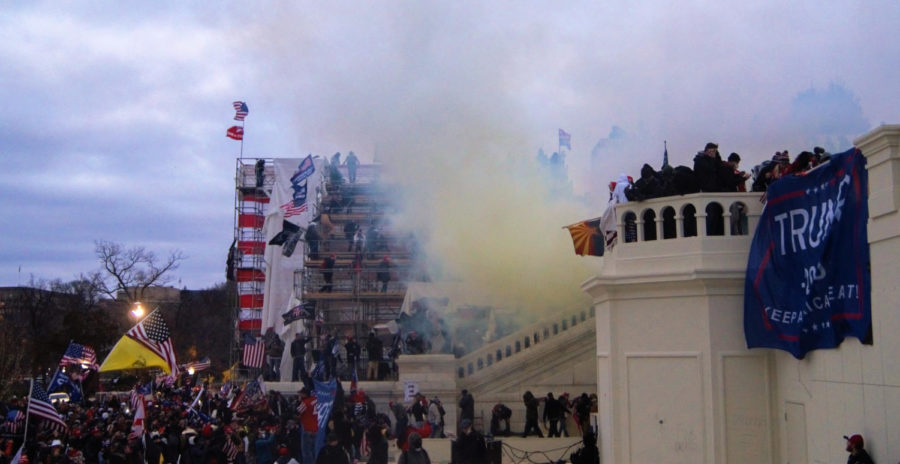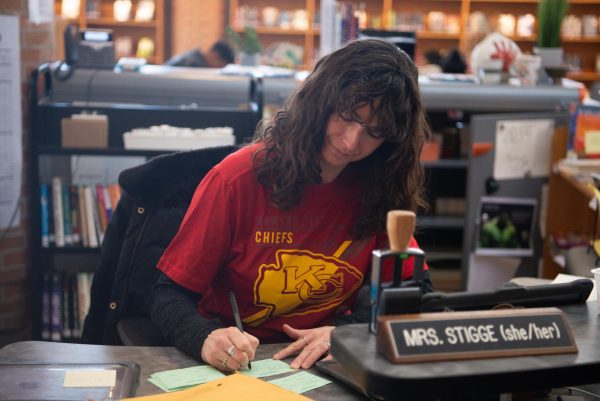Insurrection or Protest?
Everyone calls what happened at the capitol on Jan. 6, 2021, something different. Some call it domestic terrorism, and others call it a simple protest. Some call it patriotism. What do students think it should be called?
January 24, 2022
On the anniversary of the January 6 attack on the Capitol, students offer discuss whether it was an insurrection or a protest.
“It’s domestic terrorism way before it’s patriotism. Patriotism is about having faith in one another as Americans and having faith in the democratic process. That wasn’t what the insurrectionists were defending. The law doesn’t change wherever it is applied. If people were violent toward other people at the capitol, they should be arrested accordingly.” – junior Ian O’Neal
“To me, what I consider it to be was a protest that got out of hand. Those people who damaged property, stole stuff from the capitol or injured anyone should be charged. The people who were just following the crowd into the capitol didn’t really do much probably shouldn’t or have just a minor fine or something like that. ” – junior Wyatt Coats
“I believe that domestic terrorism and patriotism are both very extreme ways to describe the incident that occured at the Capitol. I don’t think it was either. I would say it’s an action of disrespect. I believe that people who caused damage and/or harmed others during the storming of the Capitol should face legal action.” – junior Natalie Nolan
“I think it was, from what I recall from the event, a protest that went completely out of hand and it shouldn’t have happened either way. There’s consequences for their actions. They did destruction of property, they illegally entered the building and disrupted the events taking place.” – senior Jazmin Brice
“I think it was a savage attack on our freedoms by racist Trump supporters. They all should be prosecuted to the fullest extent of the law.” – junior Mason Thomas
“It was disgusting, to be honest. I don’t think that should’ve happened. I don’t have any other words for it. I didn’t really like it and I know my family didn’t. I don’t think that was just an accident. That was on purpose.” – freshman Van Collins
“I would call it a protest that turned violent. Since it was proven that not everyone at that riot instigating violence was a Trump supporter – there were many Antifa supporters – you can’t really call it terrorism. It wasn’t more destructive or dangerous as other acts of terrorism , such as 9/11 or Pearl Harbor. In the last year, there were other protests that turned extremely violent. The meaning behind the capitol protest was very different than others. However, a lot more people and businesses were harmed during those compared to the one at the capitol. At those protests, those who caused destruction and incited violence were, nine out of ten times, not charged with anything. I think if you’re going to hold people accountable for their actions, it needs to be consistent. That being said, I do think trespassing and destruction of property are all fair charges. By not charging those who committed these crimes, we allow other people to think that it is acceptable.” – junior Katie Burke
“I wouldn’t call it an act of terror, as I feel that term should be reserved for things like 9/11 and such. It was a rash outcry from a lot of misguided far right people who felt that storming the capitol was the only course of action that could alter the outcome of the 2020 election. I think those who chose to riot and enter the capitol should be . Those who chose to continue in peace and just protest shouldn’t be.” – Adam Sakati









